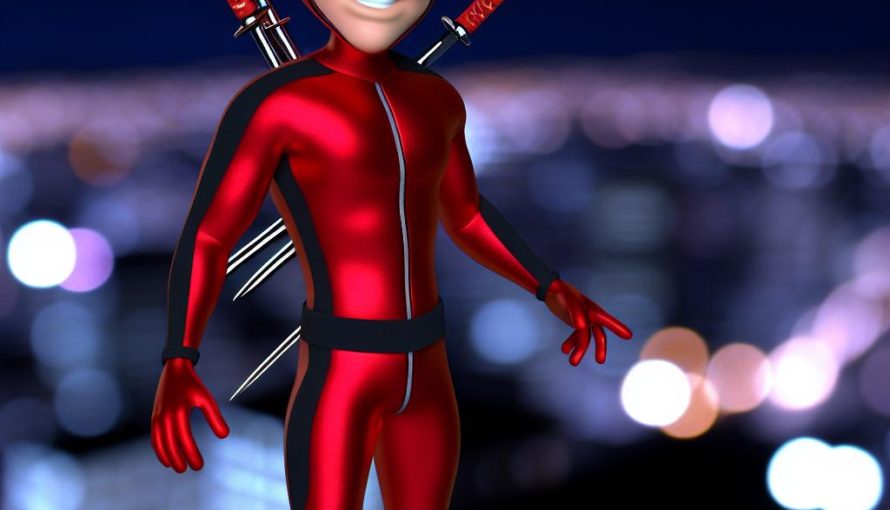Deadpool

Introduction to Deadpool
Deadpool, known for his unconventional approach and meta-humor, is a fictional character from the Marvel Comics universe. Created by writer Fabian Nicieza and artist Rob Liefeld, he made his first appearance in The New Mutants #98 in February 1991. Originally portrayed as a supervillain, Deadpool gradually evolved into an antihero, characterized by his unique style and personality.
Origin and Background
The character’s real name is Wade Winston Wilson. While much of his origin story is shrouded in mystery, it’s widely accepted that he was a former mercenary turned subject of the Weapon X program, a covert initiative aimed at engineering super-soldiers. This program granted him accelerated healing abilities similar to those possessed by Wolverine, although it left him with a scarred appearance. His journey from mercenary to a super-powered individual is not straightforward and involves a myriad of complex, often tragic events that solidify his role within the Marvel lore.
Character Traits
Deadpool stands out in the Marvel universe due to his self-referential and often irreverent sense of humor. Known for breaking the fourth wall, he frequently engages in direct conversation with the audience. His unpredictable nature and penchant for pop culture references contribute to his unique appeal. This ability to break the fourth wall not only differentiates him from other characters but also allows for a storytelling device that bridges the gap between fiction and reality, engaging audiences on a deeper level.
His approach to situations is often unorthodox, with a balance of humor and violence that challenges conventional superhero norms. Deadpool’s character embodies chaos, where his actions are driven by whim rather than duty or morality. This makes him unpredictable, both to his opponents and allies. Yet, underlying all this is a deep layer of complexity, which includes an unyielding spirit and often unexplored emotional depth masked by humor.
The Merc with a Mouth
Often referred to as the Merc with a Mouth, Deadpool is recognized for his talkative nature and sharp wit. This trait, combined with his combat skills, makes him a formidable and unpredictable opponent. Unlike many comic book characters, he is aware that he exists within a fictional universe, which adds another layer to his interactions within the Marvel world. His self-awareness becomes a platform for comedic expression, critique of superhero tropes, and an exploration of existential themes within the comic book narrative context.
Additionally, his persona as “The Merc with a Mouth” is not merely for comedic relief but also serves as a survival mechanism. His humor and verbosity can disarm and distract opponents, often giving him a strategic edge. His incessant commentary during combat is often mistaken for lack of focus, but it actually represents a sophisticated strategy that keeps adversaries off balance.
Deadpool in Media
Beyond the pages of comics, Deadpool has been adapted into various media formats. He first appeared in animated series and video games, gaining popularity through his unique characteristics. However, it was the release of the 2016 film that cemented his status as a mainstream character. The transition from print to screen allowed for a broader exploration of Deadpool’s character and presented opportunities to expand his narrative to a wider audience.
The Film Adaptations
The movie adaptation, directed by Tim Miller and starring Ryan Reynolds, closely follows the character’s comic book origins and traits. It achieved significant box office success, leading to a sequel in 2018. The films maintain the character’s humor and meta-commentary, further popularizing him among global audiences. Reynolds’ portrayal is often praised for capturing the spirit of the comic book Deadpool, blending humor, charm, and the unpredictability that fans have come to expect.
Moreover, the films’ success demonstrated the viability of adult-oriented superhero films, paving the way for more projects that embrace mature themes. These films didn’t shy away from the graphic and irreverent nature of the source material, setting them apart from more traditional superhero narratives. They showcased that there is a broad audience for alternative takes on superheroes, focusing on flawed, irreverent, yet deeply compelling characters.
Reception and Impact
Deadpool’s influence on pop culture is notable, particularly in how he redefines the traditional superhero genre. His humorous and violent nature allows him to address themes and scenarios that are often unconventional in comic books. As a result, he attracts both traditional comic book audiences and those interested in more satirical takes on the genre. His presence invites a critical look at superhero culture, encouraging a dialogue around what constitutes heroism and morality within this fictional landscape.
Furthermore, Deadpool has impacted the broader entertainment industry by highlighting the potential for diverse superhero narratives. His success prompted other studios to explore unconventional characters and stories, leading to an increased diversity in superhero cinema. This contributed to a shift in how superhero films are produced and perceived, emphasizing the importance of character-driven narratives that challenge traditional norms and expectations.
Conclusion
Deadpool remains a distinctive figure within the Marvel Comics universe. His complex character, marked by comedic elements and unique abilities, offers a fresh perspective within the superhero genre. As he continues to evolve, both within comics and films, Deadpool remains an iconic and influential character. His trajectory exemplifies the capability of characters to transcend their medium origin, sparking discussions about identity, morality, and the boundaries of fiction. As such, Deadpool’s legacy is not only in his stories but also in how he influences and inspires storytelling across various media.